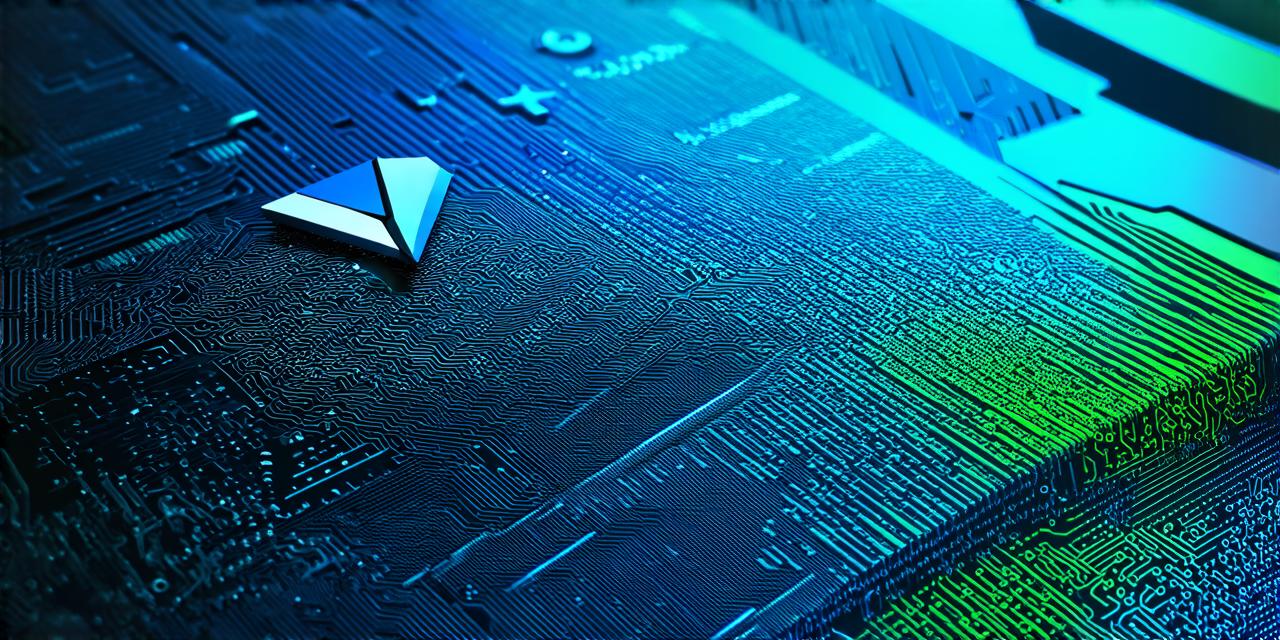Which blockchain platform is known for its smart contract functionality
As blockchain technology continues to grow in popularity, smart contracts have emerged as an important tool for automating complex business processes.
Ethereum: The Most Popular Platform for Smart Contracts
Ethereum is the most popular blockchain platform for smart contracts, with a market capitalization of over $300 billion and a user base of over 2 million developers. Ethereum was designed specifically for building decentralized applications (dApps) on top of its blockchain network.
Ethereum’s smart contract language, Solidity, is one of the most widely used languages in the industry. It allows developers to create complex contracts that can be deployed and executed automatically on the Ethereum network.
One of the key strengths of Ethereum is its large and active community of developers. There are countless resources available online for learning Solidity and building dApps on the Ethereum platform, including tutorials, documentation, and forums.
Another strength of Ethereum is its flexibility. The platform allows developers to create custom tokens, decentralized exchanges, and other types of applications that can be used in a variety of industries.
However, there are also some weaknesses to consider when choosing Ethereum as your smart contract platform. One major drawback is the high cost of gas, which is the fee required to execute smart contracts on the Ethereum network. This cost can vary depending on the complexity and demand for the network at any given time.
Another downside of Ethereum is its scalability issues. As the number of users and applications on the platform continue to grow, there have been reports of slow transaction times and high fees. This can make it difficult to build large-scale dApps on the Ethereum network.
EOS: A Fast and Scalable Platform for Smart Contracts
EOS is a relatively new blockchain platform that was designed specifically for building decentralized applications. One of its key strengths is its speed and scalability. EOS uses a delegated proof-of-stake (DPoS) consensus algorithm, which allows it to process transactions much faster than Ethereum.
Another strength of EOS is its low cost. Gas fees on the EOS network are significantly lower than those on Ethereum, making it a more cost-effective option for building dApps.

EOS also has a relatively large and active community of developers, with many resources available online for learning about its smart contract language, WebAssembly, and other features.
However, there are some weaknesses to consider when choosing EOS as your smart contract platform. One major drawback is the lack of decentralization on the network. Unlike Ethereum, which is governed by a decentralized autonomous organization (DAO), EOS is controlled by a small group of developers who have been chosen to manage the network.
Another downside of EOS is its limited flexibility. While it has some features that allow for customization, it is not as flexible as Ethereum when it comes to building dApps.
Tron: A Popular Platform for Gaming and Entertainment Applications
Tron is a blockchain platform that was designed specifically for building decentralized applications, particularly in the gaming and entertainment industries. It has a market capitalization of over $5 billion and a user base of over 20 million developers.
One of the key strengths of Tron is its low cost. Gas fees on the Tron network are significantly lower than those on Ethereum or EOS, making it a more cost-effective option for building dApps in the gaming and entertainment industries.
Tron also has a relatively large and active community of developers, with many resources available online for learning about its smart contract language, TRON, and other features.
Another strength of Tron is its support for decentralized applications in the gaming and entertainment industries. The platform has a number of features specifically designed for building games, such as a built-in gaming engine and support for non-fungible tokens (NFTs).
However, there are also some weaknesses to consider when choosing Tron as your smart contract platform. One major downside is its limited scalability. While it can handle a large number of transactions, there have been reports of slow transaction times and high fees on the network.
Another weakness of Tron is its lack of flexibility. Like EOS, it has some features that allow for customization, but it is not as flexible as Ethereum when it comes to building dApps in other industries or with specific requirements.
Summary
In conclusion, each blockchain platform has its own strengths and weaknesses when it comes to smart contract functionality. When choosing a platform, it’s important to consider your specific needs and the resources available to you as a developer.



